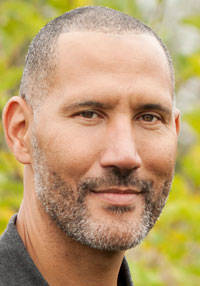Why is it so hard to be wronged? In general, human beings hate seeing a wrong go unpunished, especially when we are the ones wronged. We seem to be hard-wired with an imperative to see justice levied unmercifully against those who treat us unfairly, lie about us, cheat us or hurt us.
Of all the harrowing feats and challenges we face in life, few will stretch us or prove more formidable than our ability and willingness to endure being wronged by another.
Proverbs 18:19 says, “A brother wronged is more unyielding than a fortified city; disputes are like the barred gates of a citadel.”
It’s a funny thing about justice. Most of us would make poor judges. We are most passionate about justice when we are the subject of the perceived injustice. But our shouts for justice diminish significantly when someone else has been wronged or when we are the accused wrongdoer. Oh, then how we then love mercy! It’s like playing monopoly with my wife…I’ll say no more on that subject.
We can all find ourselves in the story Jesus tells in the Book of Matthew. He tells of a king who went to square his accounts and found a man who owed him nearly $500,000. He had the man brought before him, but the man was unable to pay. So, the king ordered to have this man, along with his wife and children, sold into slavery to settle his debt. The man fell before the king begging for a little more time, swearing he’d pay back all that he owed. The king had compassion and in a show of grace and mercy forgave the man of all that he owed and let him go free.
The man’s debt was completely wiped away. Immediately as the man left the king’s court he ran into a guy who owed him $50 and he grabbed him by the throat and demanded payment, but this guy had no money to pay him. The poor guy begged for more time but the man had him arrested and thrown in jail until the debt could be paid. When the king heard what had happened he was very angry and said, “You evil servant! I forgave your entire debt when you begged for mercy. Shouldn’t you have been compelled to be merciful to your brother when he begged for mercy?”
We all love mercy when we are the wrongdoer. Why is it so difficult to be merciful when we are wronged? Woe to person who violates our very biased moral code.
Maybe we struggle letting someone else have an easy way out if we forgave them. Or we might believe this person “in the wrong” would be the winners if we just forgave them. After all, having done wrong to us, why should they walk away freely? Some even believe others deserve our hatred and anger if they have done something wrong to us or to our loved ones. We view personal mistreatment as inexcusable and demand retribution. Our tendency is to raise the costs of retribution so high that it could never be paid in full and so we remain “justifiably hurt” indefinitely.
What a poor way to live.
Most of us would make lousy judges. So often both sides of a dispute feel they were the ones who were wronged. Each build insurmountable conditions of retribution. And so, friendships are lost, families are split and many relationships are never restored.
I think God commends our ability to let wrong happen to us and even to those we love. Jesus not only taught us the concept of turning the other cheek but demonstrated the beauty of contentment during unprecedented injustice and mistreatment. He endured betrayal, abuse and shame despite his innocence. He was the only one qualified to judge yet instead he cried only for their forgiveness.
I can honestly say there is sweet joy when you can let go of a wrong. There is peace when you release a person of an offense even in the midst of personal pain and loss. What if our shouts for justice and punishment were satisfied when Jesus died on the cross for a world of wrongdoers. Maybe if we remained overwhelmed with gratitude for the love and mercy God has shown us through Christ we could share this gift of forgiveness with others.
Heath Rainwater is lead pastor at Grace Point Northwest Church in Enumclaw.


